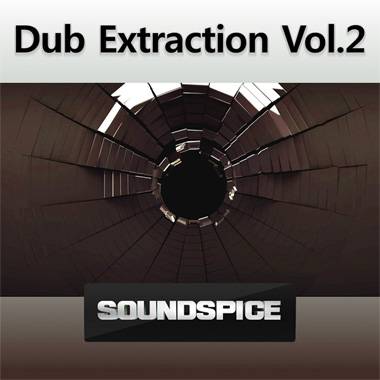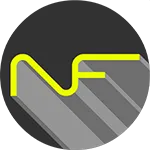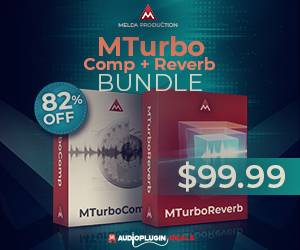2. October 2015 | Developers | Carl
Talk-Zone #15 Interview with Perimeter Sound
Hello Noizefielderz, today we’re talking with Jeff Rhodes from Perimeter Sound
and his sound label Soundspice about his sound design work and his versatile sound-collections. He’s also spending an exclusive freebee Pro Sessions soundpack for you. Additionally you’ll get only at Noizefield a 50 % discount for his brand new sound collection „Dub Extraction Vol.2“. He’s got also interesting tips for upcoming sounddesigners. Enjoy reading about those companys.

Hello Jeff, welcome to this interview. You’re the man behind Perimeter Sound
and your label Soundspice. When did you start with it and what was your intension to create own sound librarys?
Perimeter Sound (Arts) is actually Todd Milne’s company name. I’ve been working with Todd since about 2000 or so. I started my own little label SoundSpice in 2011, to have a different outlet for some other styles that I didn’t feel really went well with the Perimeter Sound brand name. Plus I wanted to have the versatility to sell them completely in my own way.
Todd had gotten the Acid program and was very into layering loops but the ones for sale at the time were pretty generic, or at least of very limited genres and such. So he started chopping up some of his older recordings and making loops to use in his own music. I recall telling him about how you could sell to „anyone“ on ebay, and that’s where it started as far as -going pro-. A couple of years later we got in contact with M-Audio through a friend who worked at a Guitar Center store, and those first loop cds were born. And that’s where I started working on them too, some of my early experiments in programming (FL Studio) ended up on those M-Audio Pro Sessions titles (we did 3 of them, available for download purchase in our webshop) in addition to the best stuff from those original ebay cdrs that Todd had been selling from home.
You can get right here a freebee pack from the Pro Sessions exclusivly for Noizefield right here:
It’s obviously that you’re not following the latest hypes. The sound collections aren’t sounds for the masses, it’s more nicheniss, right?
For better or worse, we just sound like us, as opposed to whoever is on the radio or in the club etc. The reason for that is pretty simple really, we don’t usually listen to those kinds of music. I was drawn into dubstep a little bit a few years back (I thought it was kind of the nu-skool industrial sound, and it sort of is/was, but I feel like it fell short of its’ potential by the time the trend had burned out and all the pop stars had wobs and growls happening somewhat randomly in their tracks) and I spent a year or two kind of going in that direction (you can hear that on Producer Loops series „Experimental Dubstep“, and the SoundSpice series „Dub Extraction“) but even that I kind of took what I wanted from, and left the other typical parts behind. I don’t really have anything against EDM or HipHop, it just doesn’t really interest me from a production standpoint in that too much of it sounds too similar – and I don’t know what I could bring to it without wanting to change the fundamental aspects of it that make it what it is.
I do believe that a lot (maybe even as much as ½ or more) of our material (SoundSpice especially with the faster tempos) could easily be integrated into most of the modern styles. It’s just up to the producers, do they want to expand their sound ? Do they want to work with something different ? The reason to check out our collections is simple – more variety, quantity and quality for your money. But be sure to listen to the mp3 demo first and make sure you like what you hear though, quantity alone is no reason to buy something.
Which production-tools do you use for creating your ACID- and Rex-Loops? Do you have a bunch of analog synthies and drummachines in your studio or do you generate the sounds only with software-plug ins? Maybe you’re using both kind of devices.
Well the REX loops answer is easy since it’s the original one that M-Audio gave us a copy of to prep the Pro Sessions titles with, and that’s Recycle.
The Acid loops get made in various ways. I mostly just render stuff out of FL Studio then add the key info and check the tempo info, both in Sound Forge. I have done some stuff in Acid and rendered that out. And working with Todd in the past, I believe he used to use Ableton a lot, and would just record some stuff then render out bars of it for loops. Making loops is more a matter of feel or taste, than it is about what you used to make them, or what software they came from. No one cares about any of that in the end, especially not the folks who just listen to music.
We have used hardware synths and fx in the past, though currently I’ve been working mostly in-the-box. Todd has always used all kinds of stringed instruments, and in the more recent years he has gotten more and more into flutes and wind instruments, even having made some himself. The only time I did a serious sampling type of project was for ‘Brain Danse’ back when I had an (Ensoniq) FIZMO hardware synth. But even then I ended up effecting quite a number of those loops after the fact. Old hardware synth screens are too small to deal with, and short of expensive chip or card based upgrades, they are kind of dead in the water once they’ve been released – unlike a software synth that (usually) gets updated and even has new features added after a year or two. If I was going to play live I would probably want to get a hardware synth for that, but who knows, a laptop and midi controller might work just as well at this point in time.
If U-he ever makes a hardware Zebra synth….I might have to sell my car or something to get one of those.
How could people imagine your postproduction/editing process with your REX-files? Tell us something about your approach to it. Do you shuffle the slices sometimes before releasing it, do you use outboard-equipment (e.g. for mastering the files) and do you arm the REX-files with effects before a loop is finished?
You know, we don’t use REX other than to convert the loops to that format. I do like to get a hair creative with that sometimes though. Usually you just make sure each beat or percussion hit is a slice, or each note or whatever. Sometimes I go for more of an overall rhythmic type of feel though, just for variety, in example to add a kind of gating or pumping effect.
I’ve used quite a few beat-chopper type of programs/vsts before though, which I think is what you’re asking about really. LiveSlice comes to mind as one that was quite useful to me. And I did add fx after-the-fact quite often. Sometimes a sound (beat or synth etc.) doesn’t need any fx to make it sound good, but as we all know it usually needs a little something. The trick, or one of the tricks anyways, is to not over-do it. If you make something too crowded, or too signature sounding, then it’s just tough (or impossible) for someone else (or even yourself) to use it later on in a different context. That was a huge lesson I had to learn, that and the tempo.
Example: Don’t go trying to make drum & bass loops at 100 bpm, that’s just not right, make it as close to the normally heard tempo as you can, it’ll sound better and be more useful to people. That tempo advice should have been obvious to me, but this was a dozen or 15 years ago, there were no Youtube tutorials, and all styles of electronic music hadn’t been so analyzed and mapped out yet like they are now.
How much guys are working for Perimeter Sound and Soundspice and what do they do? (e.g. soundproducer, graphicdesigner for the covers, marketing etc…)
It’s just me and Todd. We have kind of both done everything at this point. Currently I run the online/sales aspect of it, and have really been the one doing loops and synth patches for the past few years. Todd definitely set the standard for what we do though with his early work, and was very instrumental (pun intended) in helping me have a template to follow for the whole business.
Quick shout out to 3ee (http://3ee-sounddesign.blogspot.com/) KvR musician/producer/graphic artist and all around good guy who has helped me tons with cover graphics and mp3 demos.
And a thumbs up for Lance Roethle (https://www.facebook.com/lancer.roethle) local drummer man and photographer allstar.
Which new soundcollections could be expected next for the fans of Perimeter Sound?
EXCLUSIVE DEALS:
50 % Discount off Dub Extraction Vol.2
Enter the discountcode NOIZEFIELD here at: Perimeter Sound
Additionally 1/3 off the Pro Sessions bundle (from 1.-31. October)
Perimeter Sound will be releasing a new Zebra patches set this fall (this set will feature Keys & Leads, and I hope to have it out October 1st) and maybe a Hive patches set. I want to do a Hive one, and I have lots of patches made, but it needs more of a theme and I need to work on the modulations more since it doesn’t have any cool X/Y morphing pads like Zebra does. Also I’m hoping to get an -everything bundle- (for all the Perimeter Sound loop sample sets) set up before x-mas. We used to have the DVDr collection, back before downloads took over, but it was incomplete because a disc couldn’t hold everything. So if/when that comes out it should be popular since the discounted bundles always are.
SoundSpice has a ton on the way and in the works, as well as triple bundles of the original series. Next up is ‘Dub Extraction Vol 2‘, a set of 5 kits with midi files included. This series is a more-dub-and-less-step continuation of the kind of stuff I did for the „Experimental Dubstep“ PL series. And it’s all at 140bpm so it can be instantly mixed in with everything else that producers have already created.

Do you also play music (in a band / DJing etc..) ?
I do not, but Todd does, check his personal music page here
http://www.milnesounds.com/
The closest thing for me is our Soundcloud page which just has a handful of extras/various older tracks. I hope to get a ½ dozen or more things posted this fall/winter when I find some good stuff to post. That page is here:
https://soundcloud.com/perimeter-sound
You’re working closely with the Producer Loops label, what could people expect next there?
I think we’re doing World Tek 5 & 6 for them. And I have a new demo I plan to shop to them soon, so those may or may not turn into something. We’ve had a pretty good relationship with them over the years, but it’s still like an independent contractor type of thing, ie = we do our work, and if they like the demo then they’ll release it, otherwise it’s up to use to change it or just release it on our own. I guess, looking back, that’s also part of why I started up SoundSpice. I was just doing too much/too many different things, and they didn’t all fit the Perimeter label style, and PL didn’t want them all, so I made a 3rd option.
A question for upcoming sounddesigners: Is it difficult at the moment to sell own sounds and samples or is there still a market for new stuff, and what needs a sample-product 2015, that it’s not getting lost in the shuffle?
As with most things, the market is very saturated at this point and that means it’s going to be harder to get in and make it worth the time : by which I mean make any rent money. And as always, the trick has several parts to it. 1) find something missing from the marketplace and fill that ‘hole’, 2) do it well enough to get some word of mouth and repeat customers, and 3) spend more time promoting (or find someone who will). Bonus 4th thing to do = customer service. That can help with #2 (above) as well, it should be no surprise that people like being treated decently, and that alone will set you apart in a lot of cases.
I have no idea what the world wants or needs as far as new loops/samples/patches. At this point, I just make sure I’m doing the best work that I can, and am not repeating myself, cause who wants to buy the same thing over and over again when it comes to sounds. If I wouldn’t buy it, then why would I try to sell it?
So let’s come to an end. Now let’s tell our Noizefield-readers something, what you always wanted to say.
There aren’t too many secrets involved in this business, in fact I think I just gave most of the big non-secrets away in the previous answer ha-ha. But if I had to tell a new or beginner sound designer or musician something advice-ish, I guess it would just be that if you are lucky, your first few years or even decade of stuff will suck. Because assuming you last (and improve) long enough to look back and notice that, you will be much better by then and that is always the goal = make it sound better.
Other than that, just focus. Spend more time on the arrangement, on making the transitions or changes smoother or more extreme. The listeners do not care how many edits you made or what $300 EQ. Plug-in you used, they just want to hear something that they can escape into. For individual sounds, give them subtleties, small changes make a big difference. Not everything has to be ‘epic’, nor is it supposed to be.
Thank you so much for taking time to this interview.
My pleasure, it’s always weird to look back, or talk about the process or the biz side of things, but maybe it can be interesting or useful to someone else. And if Loopmasters or Big Fish is reading this, hit me up through the contact us page, we’d love to get listed in your shops.
More information: Perimeter Sound
HIT OR SHIT Indicator
Average Indication by Readers
What do you think?
Hit or Shit? Please rate from 1 (💩) to 10 (🚀)
Leave a Reply
You must be logged in to post a comment.



Pingback: Dub Extraction Vol 2 sample pack at SoundSpice
Pingback: SoundSpice Acid Loops News & Deals - SoundSpice Acid Loops
Pingback: Acid and REX loops & Zebra patches – Perimeter Sound
Pingback: SoundSpice Acid Loops News & Deals - SoundSpice
Pingback: SoundSpice Acid Loops News & Deals | SoundSpice